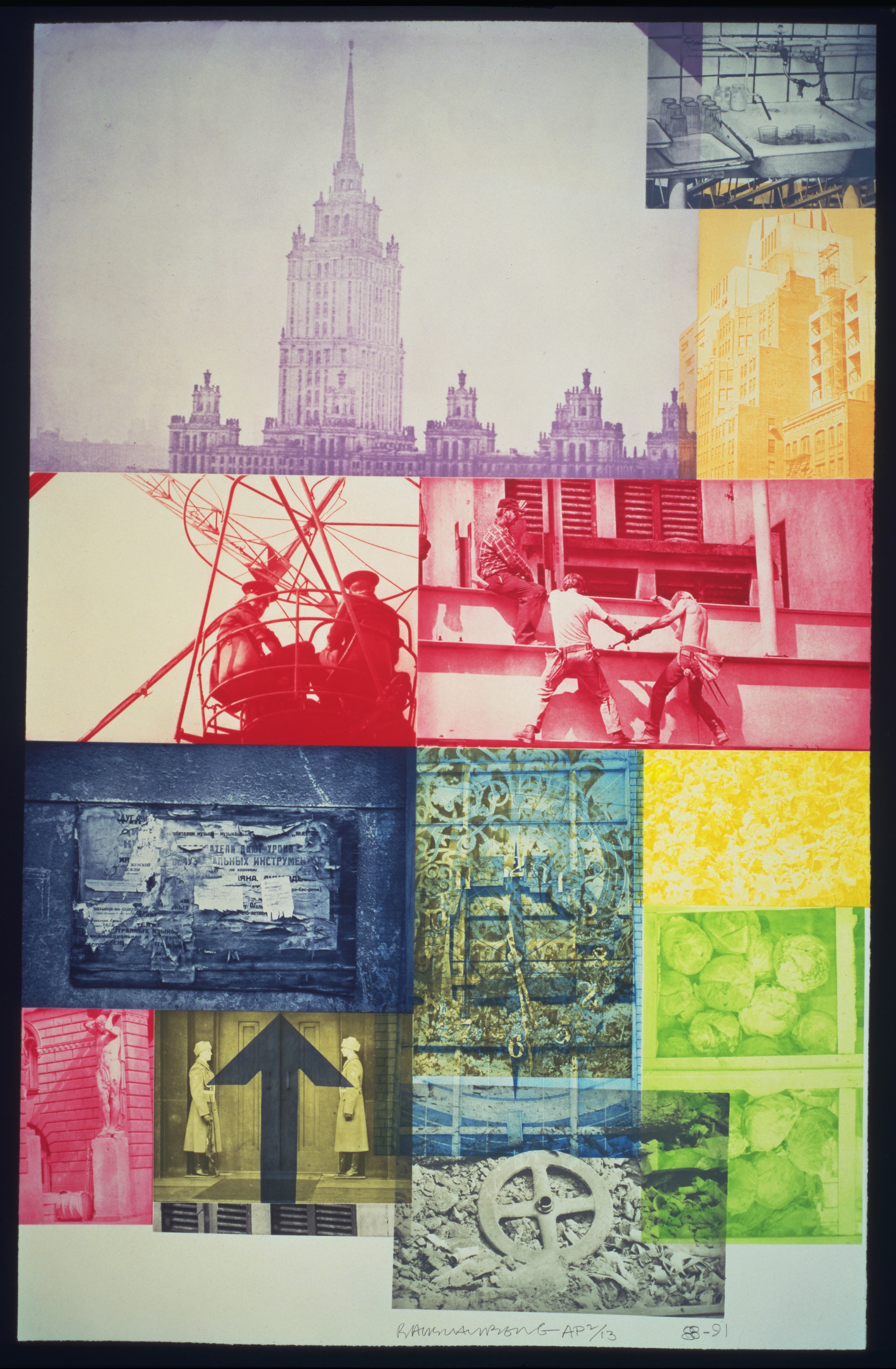Robert Rauschenberg
(Port Arthur, Texas, 1925 - 2008, Captiva Island, Florida)
Soviet/American Array VII
1988-1991
Photogravure
78 5/8 x 50 5/8 in. (199.6 x 128.5 cm)
Collection of the Akron Art Museum
Knight Purchase Fund for Photographic Media
1993.6
© Robert Rauschenberg Foundation
More Information
Considered an important forerunner of Pop Art, Rauschenberg is best known as a painter and sculptor who combined traditional art materials with everyday objects. He also worked as a printmaker, photographer and performance artist. From 1985 – 1990, Rauschenberg traveled with an exhibition of his own work to eleven countries as part of the Rauschenberg Overseas Culture Interchange (ROCI). In each location, Rauschenberg created a new body of work inspired by the local cultures he experienced, hoping to stimulate cross-cultural dialogue. The Soviet/American Array prints lay out photographs taken in both the former Soviet Union and the United States, highlighting contrasts and similarities between the two opposing super powers of the Cold War. Rauschenberg juxtaposes photographic subjects ranging from grand architecture to people going about their daily lives. Together these images call to mind the complex ways in which we understand, define and communicate the essence of cultures, which are multilayered and ever-changing. Photogravure was an unusual choice of print process at the time Rauschenberg used it, although this difficult and labor-intensive process has started undergoing a revival. It was developed in the mid-nineteenth century as a way to make permanent reproductions of photographic images. Photogravure’s extraordinary richness and subtlety of tones encouraged artists to use it not just to reproduce photographs but to create original art.
Keywords
AmericanBuildings
Color
Photography
Photogravure
Cabbage
Russia

